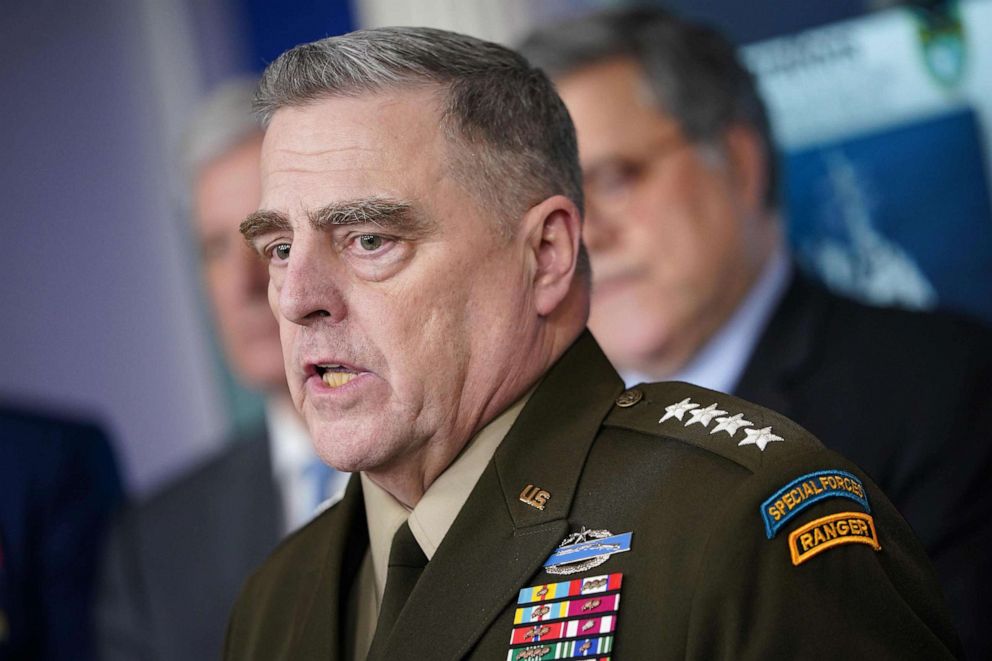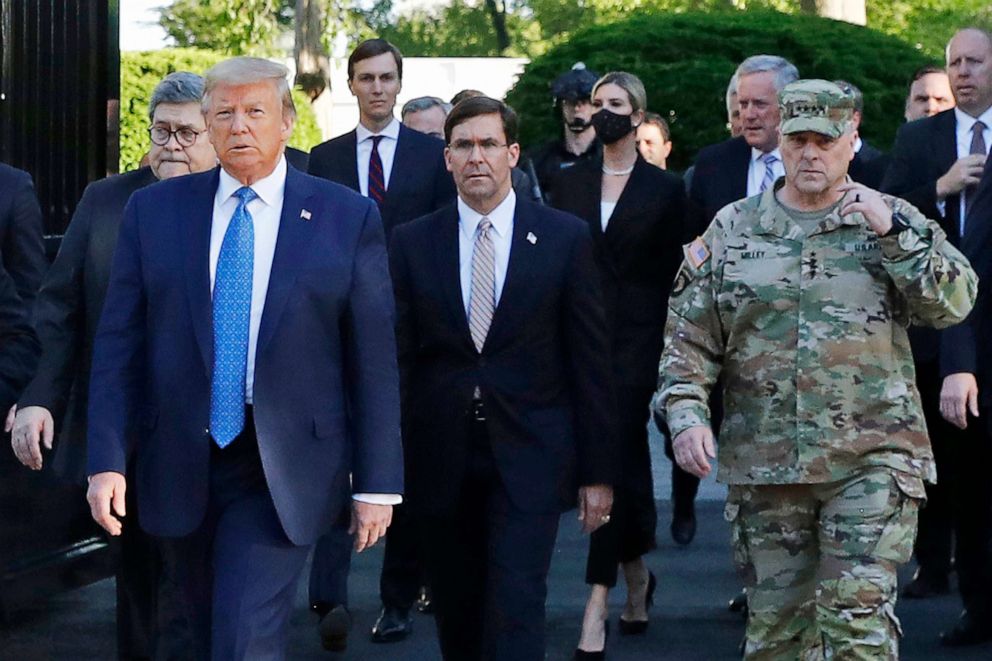Top general responds to reports he feared Trump would use military after losing election
Gen. Mark Milley reportedly called the time before Jan. 6 a "Reichstag moment."
America's top general on Wednesday spoke publicly for the first time about whether he feared then-President Donald Trump would try to involve the military in the aftermath of the 2020 election, as reported in a newly-released book.
While Joint Chiefs Chairman Mark Milley, at a rare Pentagon news conference, declined to comment on specific claims made in the book, he and Defense Secretary Lloyd Austin Wednesday were emphatic that the military is and ought to remain a strictly "apolitical" institution.
"I, the other members of the Joint Chiefs, and all of us in uniform, we take an oath, an oath to a document, an oath to the Constitution of the United States, and not one time do we violate that," Milley told reporters asking about the book excerpts. "The entire time, from time of commissioning to today, I can say with certainty that every one of us maintained our oath of allegiance to that document, the Constitution, everything that's contained within it," he said, referring to the Joint Chiefs.
"I want you to know, and I want everyone to know, I want America to know, that the United States military is an apolitical institution -- we were then, we are now -- and our oath is to the Constitution, not to any individual at all," he said. "And the military did not and will not and should not ever get involved in domestic politics. We don't arbitrate elections. That's the job of the judiciary and the legislature and the American people. It is not the job of the U.S. military. We stayed out of politics, we're an apolitical institution."
Austin went out of his way to defend Milley.
"We fought together, we served a couple of times in the same units," Austin said. "I'm not guessing at his character -- he doesn't have political bone in his body."
Before the Jan. 6 riot at the Capitol, Milley saw ominous parallels between the political turmoil in the United States and the rise of the Nazi party in Germany, according to "I Alone Can Fix It: Donald J. Trump's Final Catastrophic Year," by Washington Post reporters Philip Rucker and Carol Leonnig.
"He had earlier described to aides that he kept having a stomach-churning feeling that some of the worrisome early stages of 20th-century fascism in Germany were replaying in 21st-century America. He saw parallels between Trump’s rhetoric about election fraud and Adolf Hitler’s insistence to his followers at the Nuremberg rallies that he was both a victim and their savior. 'This is a Reichstag moment,' Milley told aides. 'The gospel of the Führer,'" Rucker and Leonnig wrote.

The authors say that Milley believed Trump was stoking unrest after the election, and decried what he called "brownshirts in the streets," although an official told ABC News the comment was in reference to the radical members of the Oath Keepers and so-called "boogaloo boys," not Trump supporters in general.
An early sign of unease between Trump and Milley came last July amid Black Lives Matter protests in Washington, D.C., when Milley apologized for taking part in Trump's controversial walk from the White House to St. John's Church, though he peeled off before the president's notorious photo opportunity.
"I should not have been there," Milley said in a prerecorded video commencement address to National Defense University. "My presence in that moment and in that environment created a perception of the military involved in domestic politics."

In August 2020, Milley told Congress there is no role for the U.S. military in elections.
Then in January 2021, after the Capitol riot, Milley and the seven other members of the Joint Chiefs of Staff signed an internal memo to service members saying "the violent riot in Washington D.C. on January 6, 2021 was a direct assault on the U.S. Capitol building, and our Constitutional process," warning them that any act to disrupt the constitutional process is against the law.
Milley said Wednesday that he and the other members of the Joint Chiefs always gave the "best military professional advice" to Trump and any other president they've served under.
"We always adhered to providing best professional military advice, bar none. It was candid, honest, in every single occasion. We do that all the time every time," he said.




